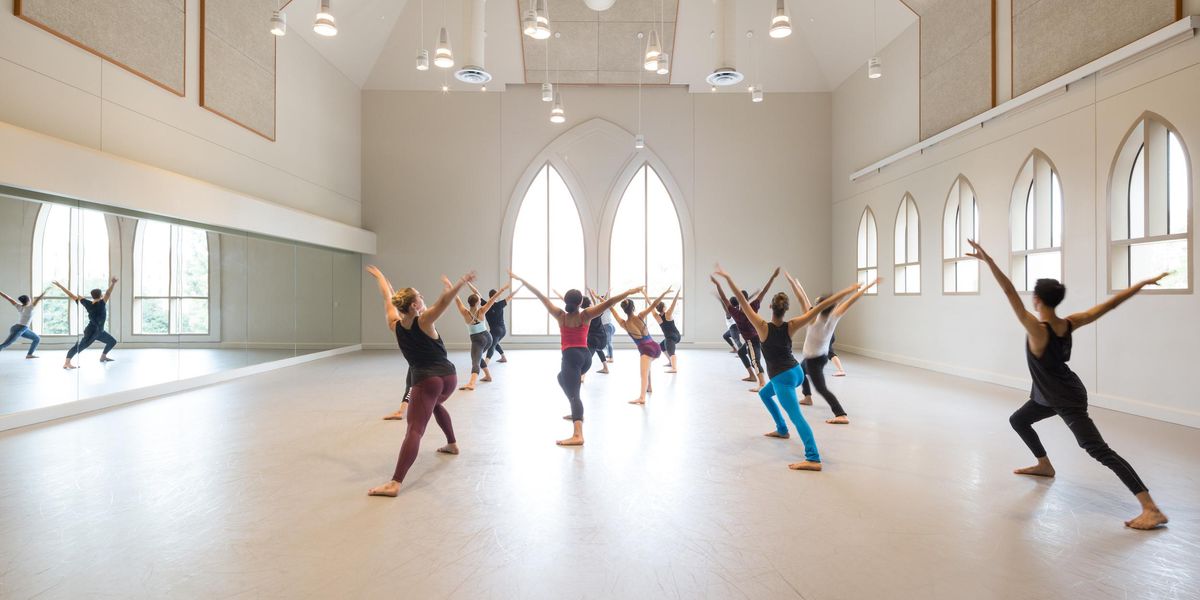Studying the Street: Hip Hop in College Curriculums
Street styles have long been excluded from college curriculums. But as the demand for dancers who can do everything grows and hip hop makes its way onto concert stages, many schools are expanding their offerings to include street dance—both as a topic of scholarship and a course of technical study. “The privileging of Western classical forms is a very old idea,” says Boston Conservatory at Berklee dean of dance Cathy Young. “I wish we’d had a hip-hop professor 20 years ago.” Even students who don’t plan on pursuing street styles after college can benefit from experimenting with the hard-hitting, improvisation-based form in a classroom setting. From groundedness to musicality to attack, the fundamentals of hip hop can serve dancers long after their college experience ends. “Whether you’re ever going to perform it or not,” says Young, “there’s so much to learn.”
Diversify Your Training
Dancers looking for work after college are asked to be more versatile than ever. “There’s so much interest in the cross-pollination of forms,” says Young. “You may be in a ballet company, and they may hire someone with a background in African dance to create a work.” That’s why last year Young hired BC’s first-ever hip-hop faculty member, Duane Lee Holland Jr. Other schools are following the trend. Mills College, which does not offer any hip-hop courses within their regular curriculum, brought on modern/street fusion choreographer Amy O’Neal to create a work and teach classes for a semester. “I’ve started taking house classes,” says current Mills MFA dance student Stephanie Hewett, whose first experience with hip hop was O’Neal’s piece. “I would have never done that were it not for Amy.” Dancers looking to prepare themselves for the demanding job market should grab any opportunity to explore hip hop. “Students can’t afford to say ‘I don’t like that, I’m not interested in it, I don’t want to learn about it,’ ” says Young. “This is the moment to learn about everything.”
Hip Hop 101
Trying street styles can unlock new aspects of your artistry and provide you with a broader perspective on dance history. For Young, hip hop is so fundamental that asking what dancers can get out of trying it is like asking what a modern dancer gets out of ballet. “One of the greatest things dancers get is articulation—mobilizing different parts of the body, especially the pelvis and the spine,” she says. From house, popping, locking and b-boying, there are seemingly endless street styles to choose from—and their virtues are endless, too. Dancers can gain “a sophisticated understanding of rhythm and musicality, groundedness, dynamic attack and a sense of individuality,” according to Young. Plus, “it’s a great release from modern and ballet,” says Alabama State University dance major Bridgette Moore, who was drawn to ASU for its diverse dance offerings. Studying street styles in an academic setting can also bring dance history closer to home—hip hop’s relatively recent development is entwined with popular culture and is uniquely American.
Beyond Technique Class
Three programs where students can explore hip hop inside and outside the classroom.
University of Southern California
All BFA students at the Glorya Kaufman School of Dance take up to four hours of hip-hop classes per week with notable faculty members such as d. Sabela Grimes. Specialized academic classes, like Hip-Hop Don’t Stop: Exploring Black Vernacular Dance, are popular among majors and nonmajors alike.
Columbia College Chicago
The school offers three levels of street technique classes, hosts dance jams that encourage students to experiment with hip hop and other genres in an improvisational setting, and holds a mini festival each semester celebrating underground and street forms.
Davis & Elkins College
Majors can focus on American Vernacular Dance, a unique program exploring traditions of social dances and their influences. All majors are required to take a semester of Contemporary Urban Dance Traditions. The department-affiliated dance club brings in guest hip-hop artists for workshops.
No Classes? No Problem.
If no courses are offered through your dance department, you don’t have to miss out on the hip-hop experience. Many schools—from Ivy League institutions like Columbia University to public universities with teams affiliated with the athletic department—provide extracurricular classes, workshops, performance opportunities and meet-ups with other college groups.




